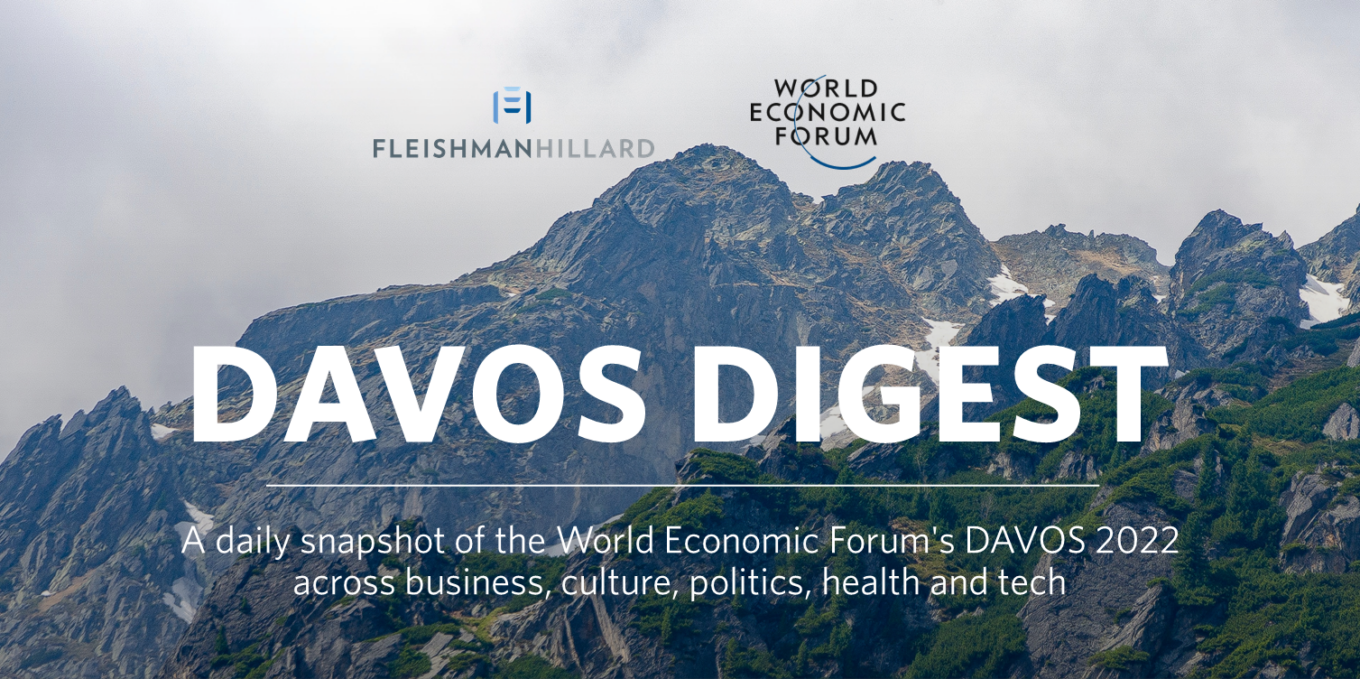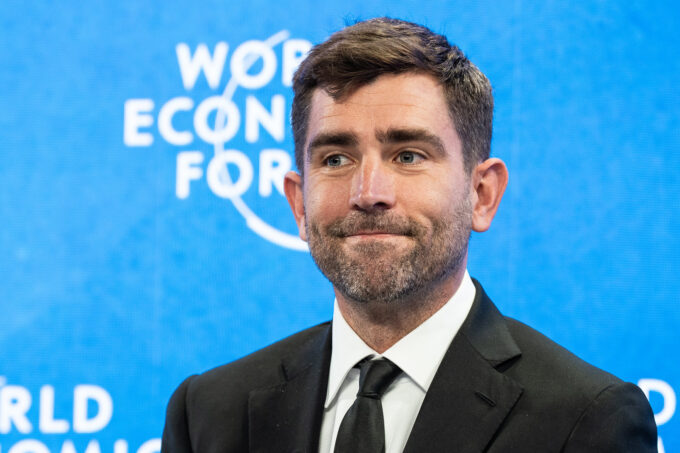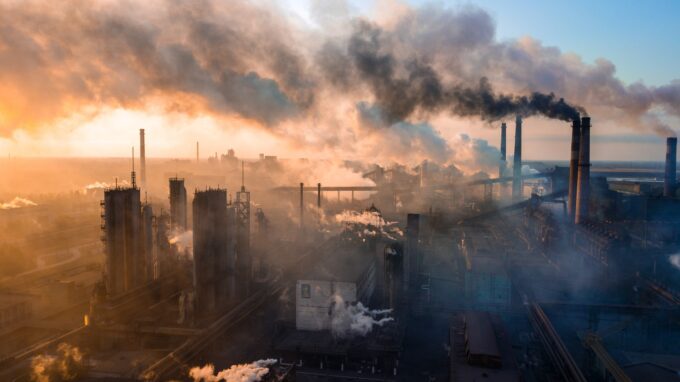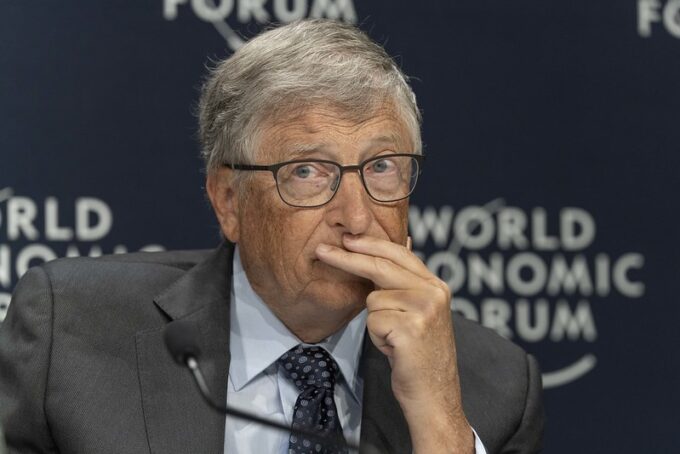FleishmanHillard Davos Digest 2022: Day 3

Davos Digest 2022, Day Three
The weather has been miserable in the world’s most famous Swiss mountain village this week, and the mood at the conference hasn’t been much better, with a sobering gloomy tone since our last update.
Tuesday evening, veteran philanthropist and billionaire financier George Soros, gave a chilling warning against autocratic regimes, stating the Russian invasion of Ukraine may be the beginning of the Third World War and a threat to free civilisation. Wednesday sessions went on to cover the escalating global food crisis, ongoing war in Europe and economic uncertainty.
We saw some big hitters deliver keynote speeches: European Central Bank Chief Christine Lagarde, US Secretary of Commerce Gina Raimondo, Greek Prime Minister Kyriakos Mitsotakis, Israel’s President Isaac Herzog, and Ukraine’s Foreign Minister Dmytro Kuleba all spoke passionately about the state of the world from their perspective.
But it wasn’t all negative… On a more positive note, Pfizer announced it will supply all of its current and future patent-protected medicines and vaccines on a not-for-profit basis to 45 lower-income countries and is talking with other drug manufacturers about taking similar steps. A refreshing, selfless move that will benefit millions worldwide. See? Not all bad.
Want to learn more? Read all about it in today’s edition of our Davos Digest.
Not Another New Normal… | DAVOS Digest 2022, Day 3
Look after your energy: Recent global developments have completely changed the conversation around energy, according to Petronas CEO Tengku Muhammad Taufik. At the start of the year, a majority of companies were focused on the transition to green energy, but the recent upheaval in the oil and gas markets has moved security back, front and centre.
Earn the commute: It’s the topic that just keeps on giving; are we going back to the office? Julie Sweet, Accenture CEO, is the latest corporate leader to weigh in. Citing recent research from Accenture, Sweet reframed the debate, arguing that employees need to be ‘omni-connected’ and that employers need to ‘earn the commute’ through diligent and compassionate leadership. Connection with work is, according to Accenture, more to do with the leadership and care you experience as opposed to the location you work from.
Wait what, some good news?!: The First Movers Coalition, a group of over 50 major global companies including Alphabet, Microsoft and Salesforce have committed $500 million to carbon dioxide removal across heavy industry and long-distance travel. The coalition, backed by a host of major companies and governments, was formed at COP26 and this step has, according to the WEF, ‘sent the largest market signal in history to commercialise emerging clean technologies’.
Looking ahead in business: We’ll be tuning into a session Thursday morning entitled, The Global Jobs Outlook, which will unpack trends in the jobs market. Aside from that, we’re just looking ahead to the point where we don’t need to listen to another CEO weigh in on WFH.

Image: Chris Cox, World Economic Forum
Going native… digitally native | DAVOS Digest 2022, Day 3
The next chapter of the internet: That’s how the metaverse was described this morning by Chris Cox, Meta’s Chief Product Officer. However, that chapter will be clouded by debate on what exactly it’ll look like feel like, and most importantly, how it will be governed. Even if the metaverse is borderless, someone’s rules are going to apply.
 Digital is king: Intel CEO Pat Gelsinger asked a panel if there is any aspect of our lives that’s becoming less digital. Unsurprisingly, the answer was a resounding ‘no’. He went on to say that this is why the next five decades of geopolitics will be defined not by where oil reserves are, but by where the manufacturing of semiconductor chips takes place. And where are most of the world’s semiconductors made? Taiwan – a place not exactly famed for its lack of long-running geopolitical issues.
Digital is king: Intel CEO Pat Gelsinger asked a panel if there is any aspect of our lives that’s becoming less digital. Unsurprisingly, the answer was a resounding ‘no’. He went on to say that this is why the next five decades of geopolitics will be defined not by where oil reserves are, but by where the manufacturing of semiconductor chips takes place. And where are most of the world’s semiconductors made? Taiwan – a place not exactly famed for its lack of long-running geopolitical issues.
Blockchain unchained: Polkadot founder Gavin Wood discussed Web3, and whether the term is too broad and all-encompassing. It’s a fair question since the term means literally everything on the blockchain, but for him, that’s the point. Instead of just seeing crypto, businesses are starting to see this as a technology building block that feeds into many different and unexpected applications.
Looking ahead in tech: While Davos will be wrapping up tomorrow, there are still some big topics left to go, including the beginnings of quantum computing and even more metaverse – just for good measure.
Feeling deflated about inflation | DAVOS Digest 2022, Day 3
One small step for salvation, one giant leap for stagflation…: However, this good news was hugely offset by George Soros’ grave warnings of an impending World War 3 and the global economy heading for a depression. The government pay-outs that were made during the pandemic have also been blamed by several commentators for being the reason behind the fears of a return to stagflation after 50 years of low inflation. Now, with the rise in prices of food and fuel due to the war in Ukraine, people from lower-income backgrounds are due to suffer the most.
“Food” for thought: Unsurprisingly, despite the lack of Russian representatives at WEF, Russia was yet again at the forefront of the conversation surrounding the global food crisis. 1.7 billion people have been found by the UN as being at risk of poverty and hunger as a result of Russia’s invasion of Ukraine. Ursula Von der Leyen, in her earlier address to the WEF, accused Russia of “blackmail” and of using “hunger and grain to wield power”. The final takeaway on the global food crisis was that an extra emphasis will be put on the need to reduce food waste in order to mitigate any disastrous consequences of its global shortage.
No get out of jail free card | DAVOS Digest 2022, Day 3
One for all and all for one?: Unity has been a core theme of Wednesday’s political discussions at Davos, with the Prime Minister of the Netherlands, Mark Rutte, urging Italy, France, and Germany to give up some of their foreign policy sovereignty and work together to help the EU coordinate the most powerful response possible to the Ukraine crisis. The need for a united front was reiterated by Zelenskyy during a morning panel discussion, stating “Our huge advantage over Russia would be when we are united.” The PM named and shamed Hungary’s Viktor Orban, who recently voiced opposition to an EU wide embargo on Russian oil.
 No wait, you haven’t got my good side: The UK’s response to the attempted Salisbury nerve agent poisonings by Russian spies was too weak and “indulged” Moscow, argued the Irish Prime Minister Micheál Martin during a panel on the European Union’s response to Ukraine. He stated that we can no longer be complacent about Russia and “hope that the better side of the country will emerge eventually.”
No wait, you haven’t got my good side: The UK’s response to the attempted Salisbury nerve agent poisonings by Russian spies was too weak and “indulged” Moscow, argued the Irish Prime Minister Micheál Martin during a panel on the European Union’s response to Ukraine. He stated that we can no longer be complacent about Russia and “hope that the better side of the country will emerge eventually.”
Sanctions to stay: US Secretary of Commerce Gina Raimondo said Russia must pay a “serious long-term price” for the invasion of Ukraine, as she made the case to delegates that the current sanctions must continue even after the war ends. Raimondo has been a key figure spearheading the implementation of sanctions by the Biden administration and was keen to stress the power that these measures can have to diminish the aggressor. “War is no longer just tanks and weapons, the starting point is technology,” Raimondo argued as she outlined how the US export ban on sensitive technologies has helped to thwart Moscow’s ability to develop vital equipment.
Looking ahead in politics: Davos winds down on Thursday, but the closing day’s events should not disappoint. Watch for an appearance from Iran’s Minister of Foreign Affairs, Hossein Amir-Abdollahian, and the special address from the relatively newly elected German Chancellor, Olaf Scholz. These two are sure to keep things interesting for the budding delegates among you.
An ambitious plan to tackle health disparities | DAVOS Digest 2022, Day 3

Image: World Economic Forum
A hot topic over the last few days, health equity once again took centre stage when Bill Gates, Pfizer’s Albert Bourla and country leaders from East Africa gathered to announce an ambitious new initiative aimed at improving health equity for 1.2 billion people living in 45 low-income countries. The ‘Accord for a Healthy World’ will see Pfizer supply patented medicines and vaccines available in the US and the EU, on a non-profit basis. The intention is to build the initiative beyond Pfizer, with Bourla expressing hope that other pharmaceutical companies will follow suit.
The planet’s beating heart: To promote good health, wellbeing must be at the heart of climate action on a universal scale. This was the message from Mauricio Cardenas, Senior Research Scholar from Columbia University’s Center on Global Energy Policy, speaking alongside a panel of experts. He argued that too often, companies with the ability to dramatically reduce their emissions, prioritise revenue over wellbeing. His call to action: wake up, smell the pollution and take meaningful action for both people and planet.
Looking ahead in healthcare: Davos may soon be coming to an end, but there’s still plenty of thought-provoking conversation on the docket for healthcare on Thursday. India’s Minister of Health and Family Welfare, Mansukh Mandaviya, will be taking part in a discussion on future-proofing resilient food systems, while the World Health Organization’s Helen Clark will join a panel exploring global risks in increasingly turbulent times.
Find Out More
-
Platinum CMS Award
March 13, 2024
-
Changing Communications Tack at Mobile World Congress
February 21, 2024


